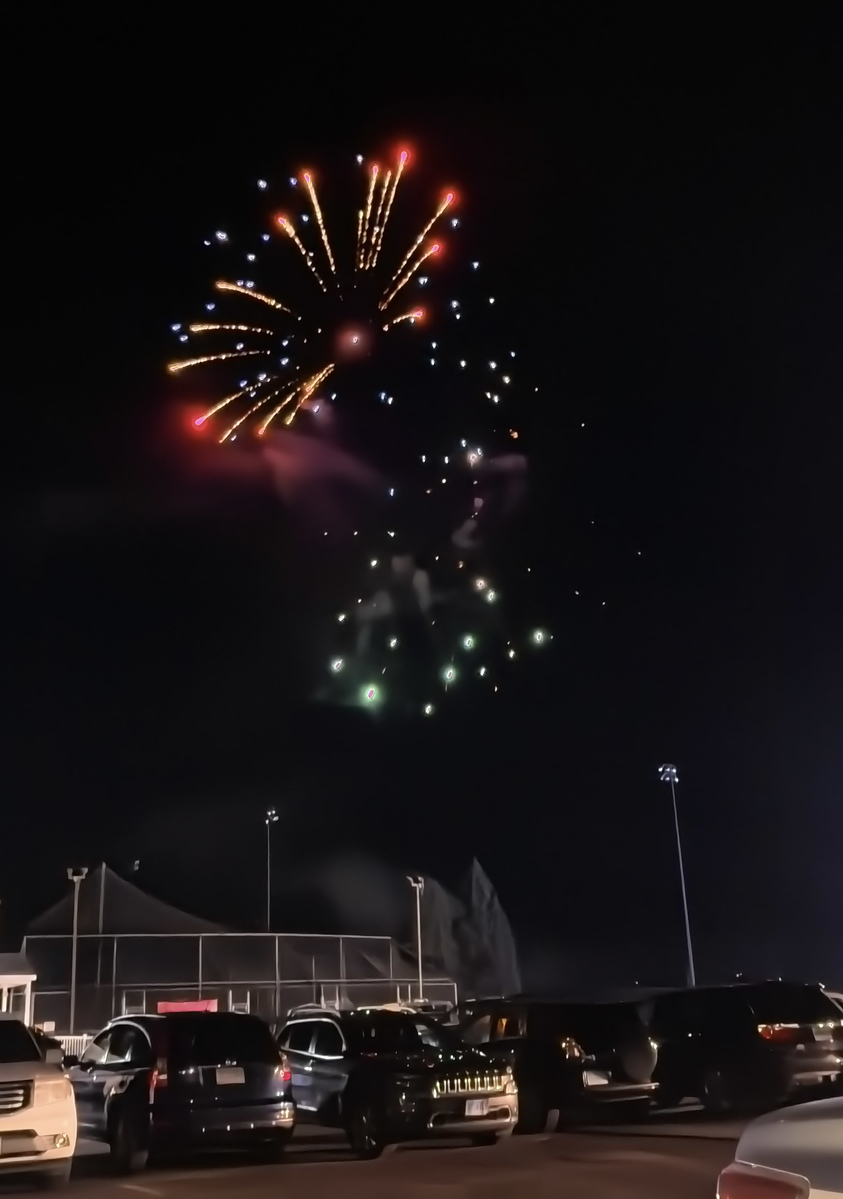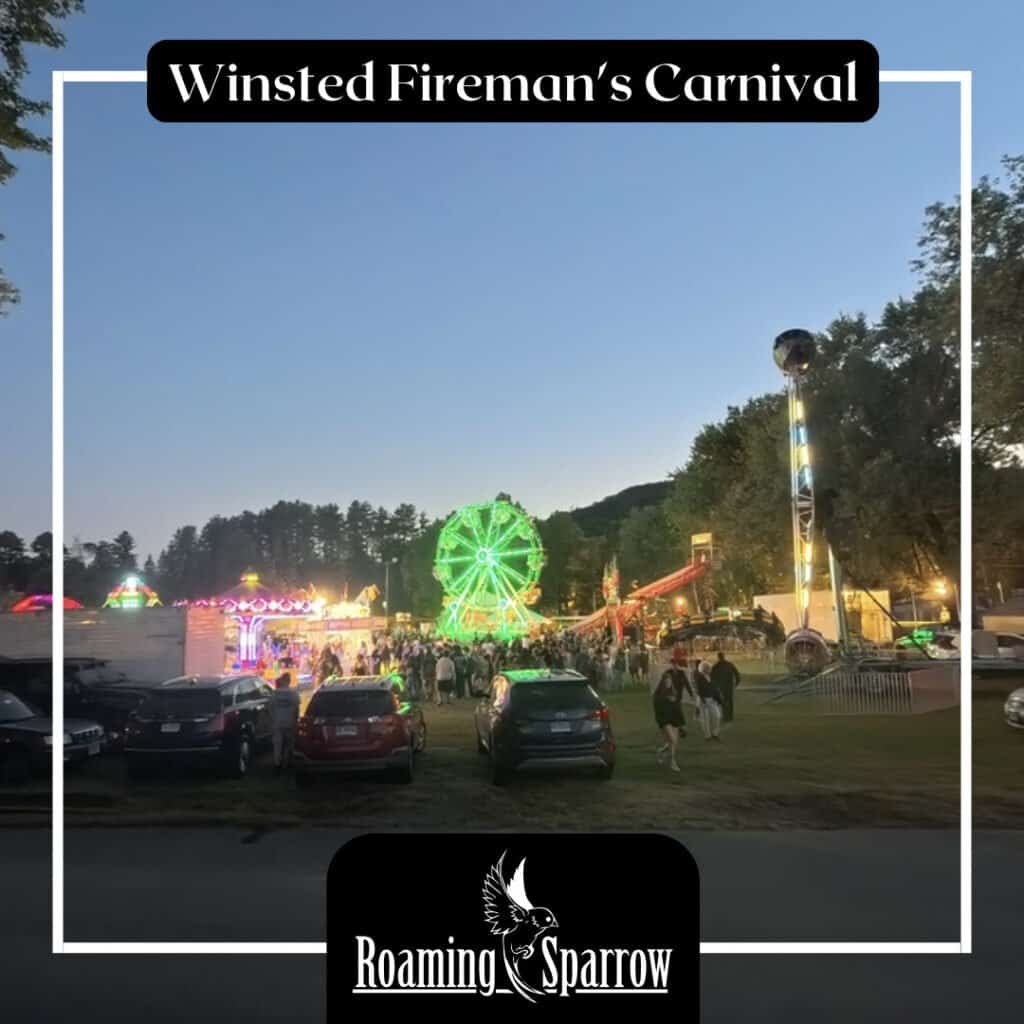
When I think back to childhood memories of summer’s end, certain details stand out with crystal clarity. The crab apple tree at the end of our driveway would start producing its small, tart fruit – nature’s calendar telling me that freedom from school was coming to an end. But nothing marked the transition from summer to fall quite like the annual Winsted fireman’s Carnival.
This four-day celebration, running Thursday through Sunday, transformed downtown Winsted into something magical for a kid. There was even a fireman’s parade that rolled down Main Street, complete with sirens, ladder trucks, and volunteers waving from decorated floats. For a small Connecticut town, this felt like the biggest event of the year.
Recently, I attended the Winsted fireman’s Carnival again after being away for years of international travel. Walking through those same streets, past those same rides, brought back a flood of memories – but also a stark realization about how perspective changes everything.
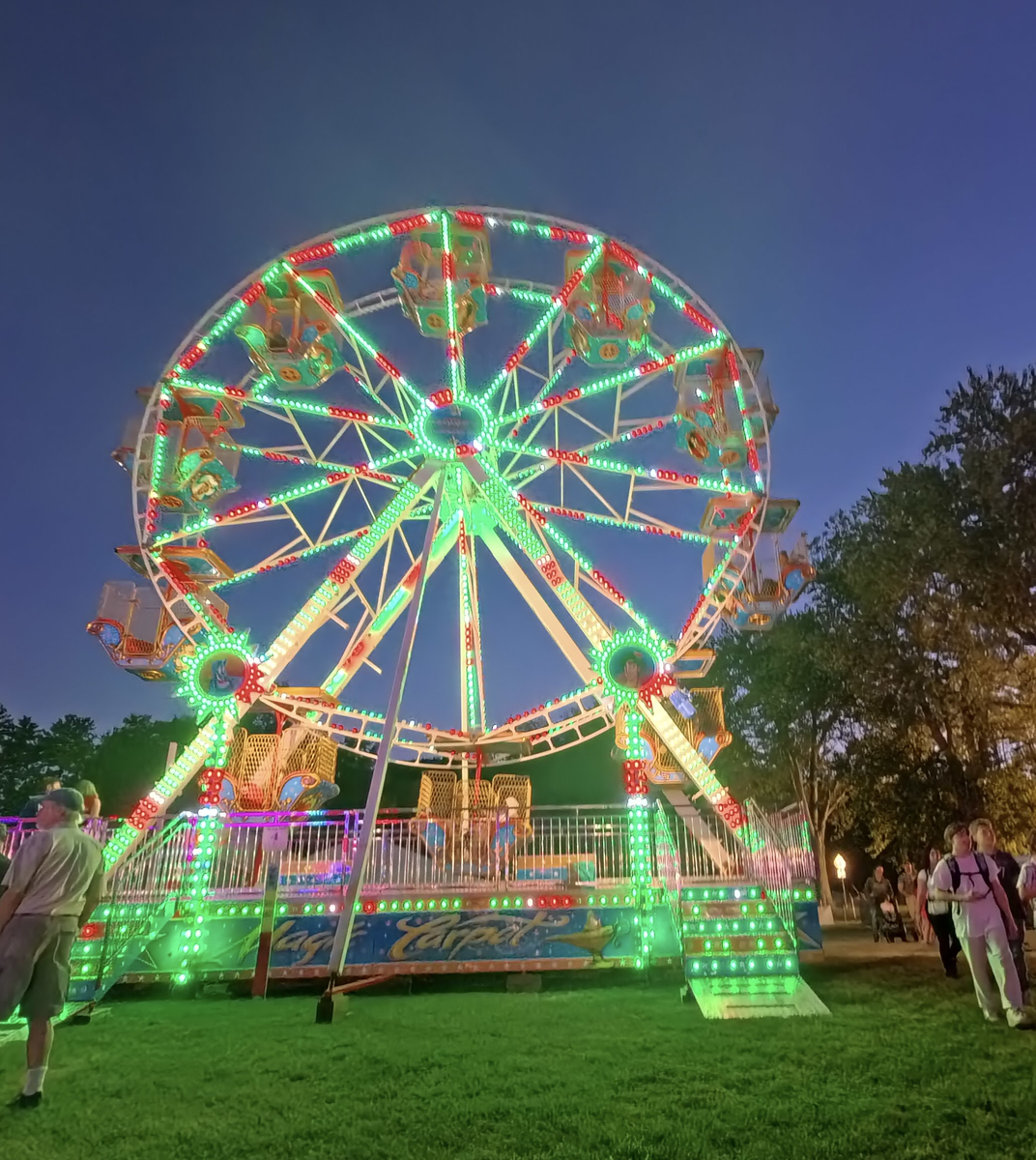
The Childhood Magic: When Everything Seemed Enormous
The carnival took place at the ballpark located downtown, and as a kid, this seemed like such a massive event. My parents would drive us there in the evening, when the lights from the rides created a glow you could see from blocks away. The sounds hit you first – the mechanical whir of rides, carnival music, and kids screaming with excitement.
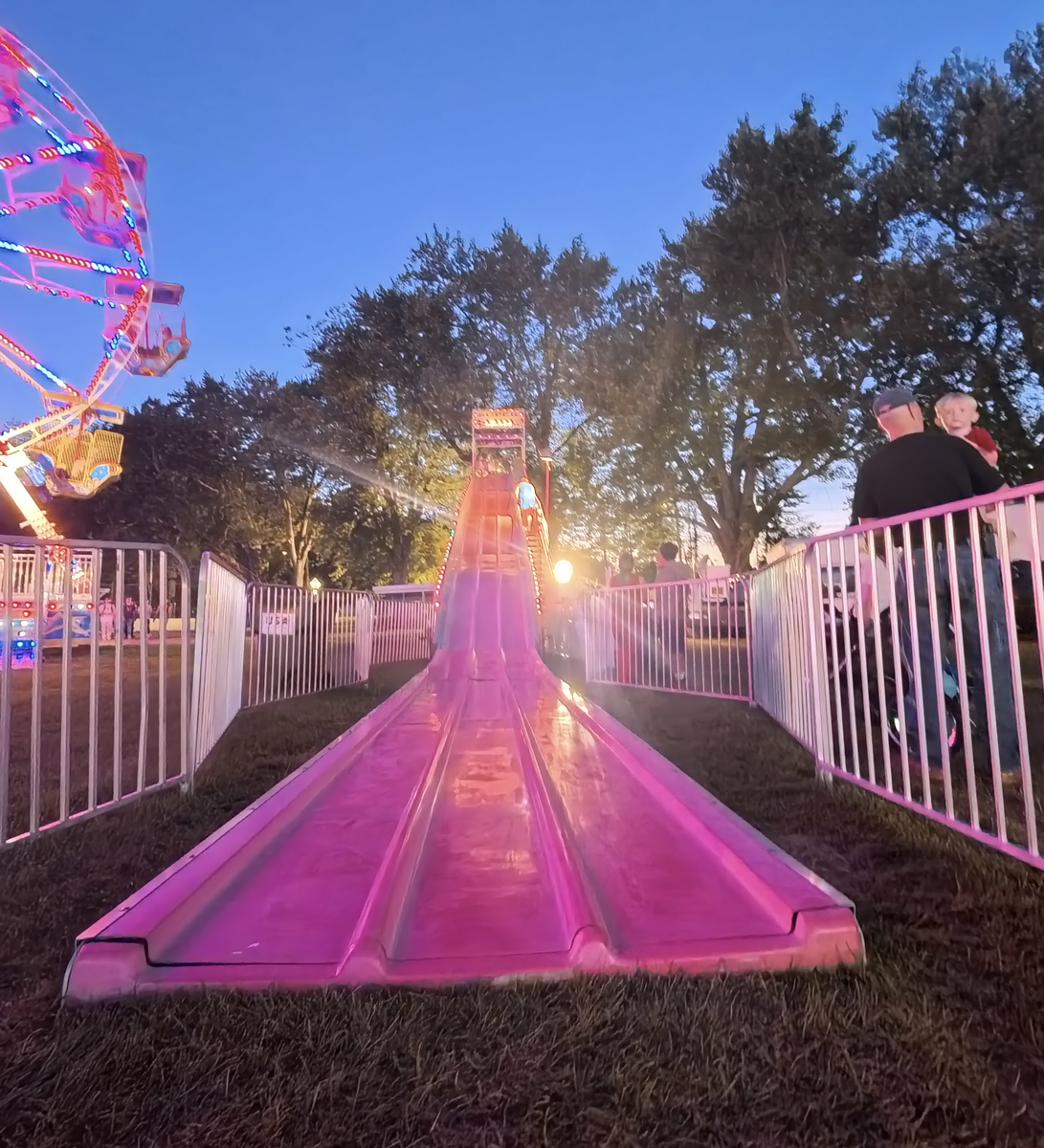
Walking through the entrance felt like entering another world. There was the old ferris wheel, slowly rotating against the darkening sky, offering views of the entire town from its peak. The scrambler – what we called the “egg beater” – spun riders around in circles until they were dizzy and laughing. The big slide towered over everything, a mountain of metal that required climbing what seemed like hundreds of steps to reach the top.
Cotton candy vendors worked their magic, spinning sugar into pink clouds. The dunk tank drew crowds of people trying to send some good-natured volunteer into the cold water below. Game booths lined the midway, promising prizes that looked incredible through eight-year-old eyes.
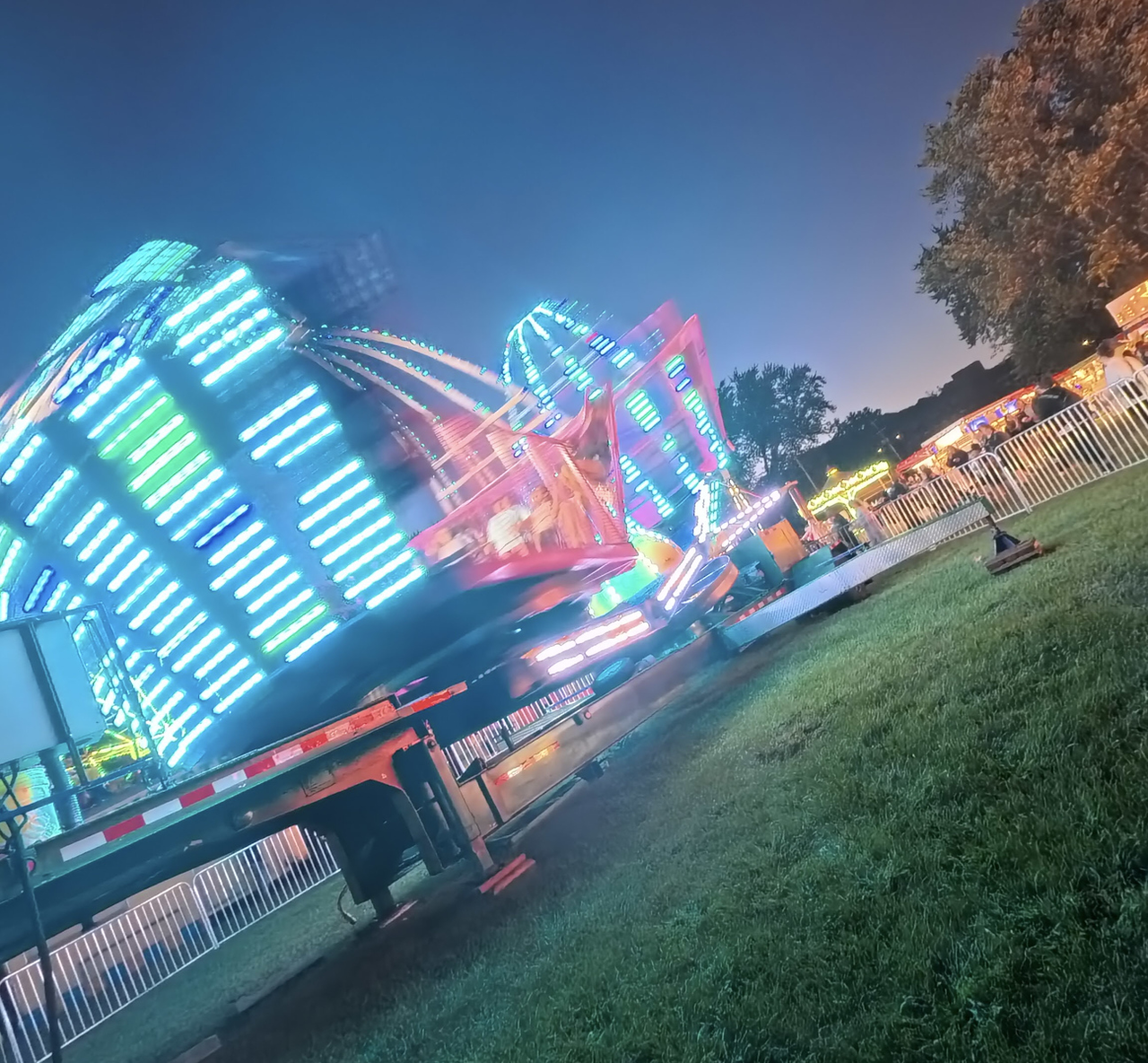
But the real magic happened in the social connections. Summer vacation meant you might not have seen certain friends for weeks. The carnival became the unofficial reunion spot where kids from all over town would converge. You’d run into classmates, neighbors, kids from your baseball team – everyone showing up to experience this shared adventure together.
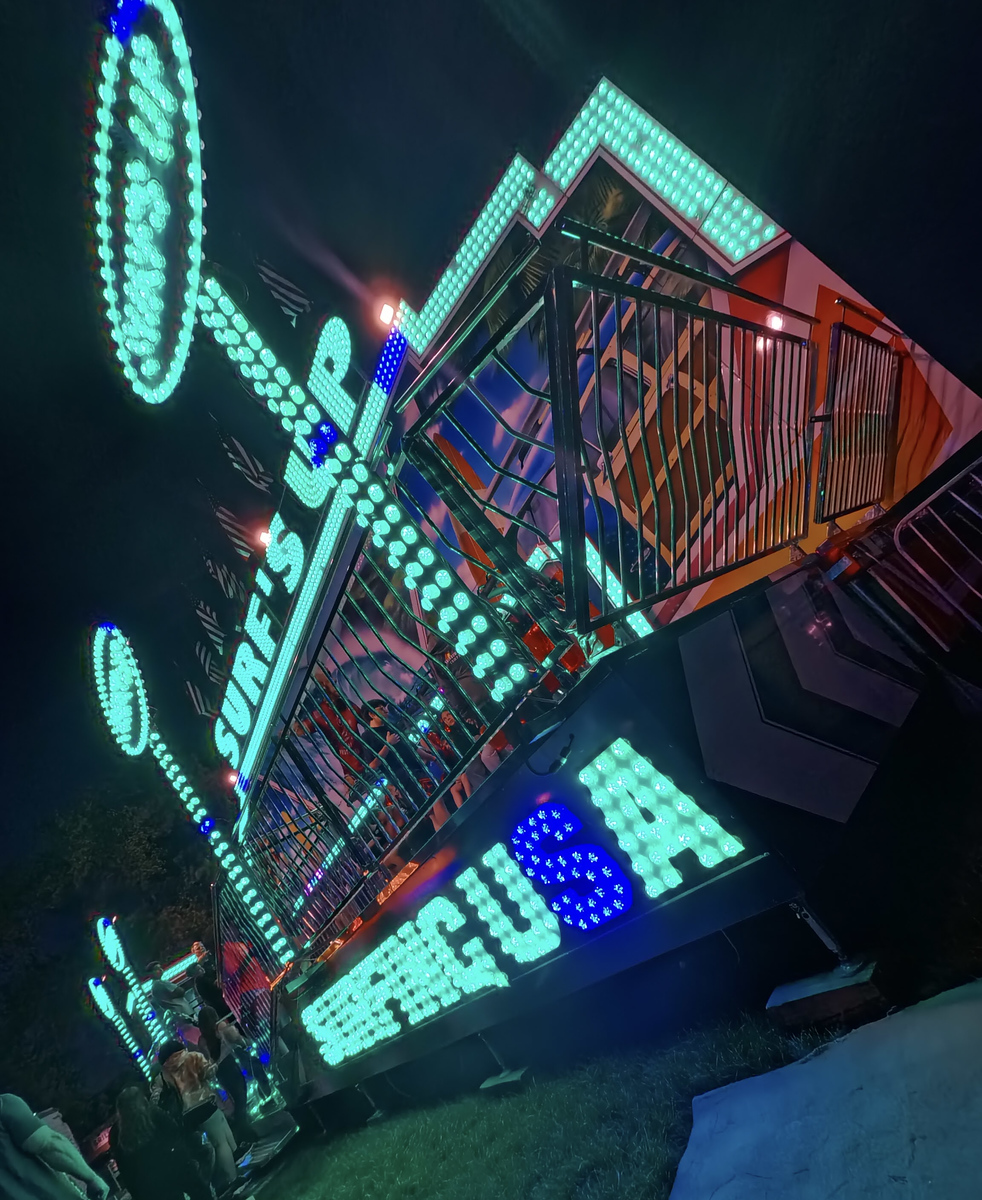
We’d run around with whatever spending money our parents had given us, making decisions that felt monumental at the time. Should we spend it all on rides, or save some for games? Was it worth trying to win that stuffed animal, or should we go for the cotton candy instead? These choices carried the weight of the world when you’re ten years old.
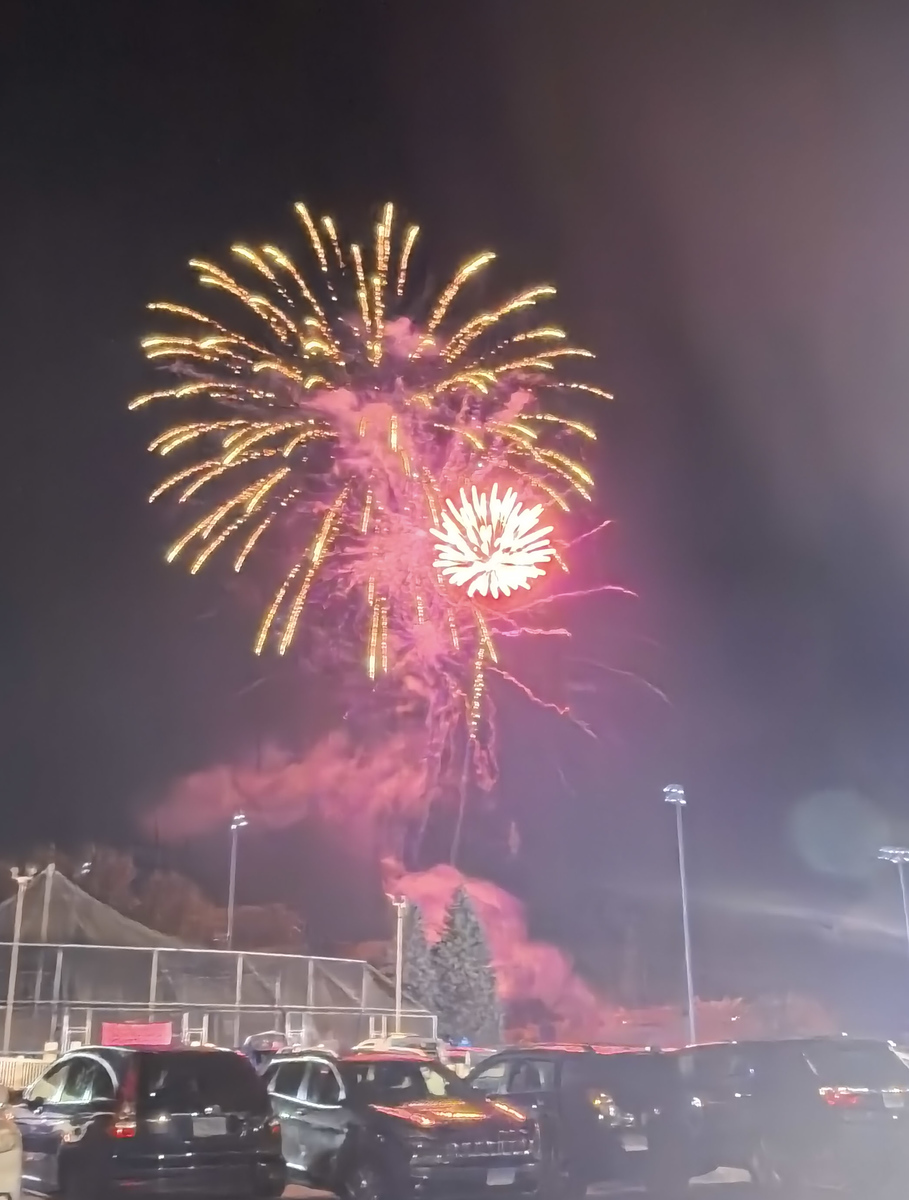
The Grand Finale: Fireworks That Filled the Sky
The evening always built toward one climactic moment – the fireworks display. As darkness settled over the carnival, families would find spots on the grass, kids would sit on parents’ shoulders, and everyone would turn their attention skyward.
When those first fireworks exploded overhead, filling the night sky with color and light, it felt like the most spectacular thing imaginable. The booms echoed off the surrounding buildings. Sparks cascaded down like falling stars. For twenty or thirty minutes, the entire town was united in looking up, watching this display that seemed to paint the heavens with impossible beauty.
That moment – sitting on a blanket with family, surrounded by neighbors and friends, watching fireworks burst overhead – represented everything perfect about small-town summer evenings. It was community, celebration, and childhood wonder all wrapped into one experience.
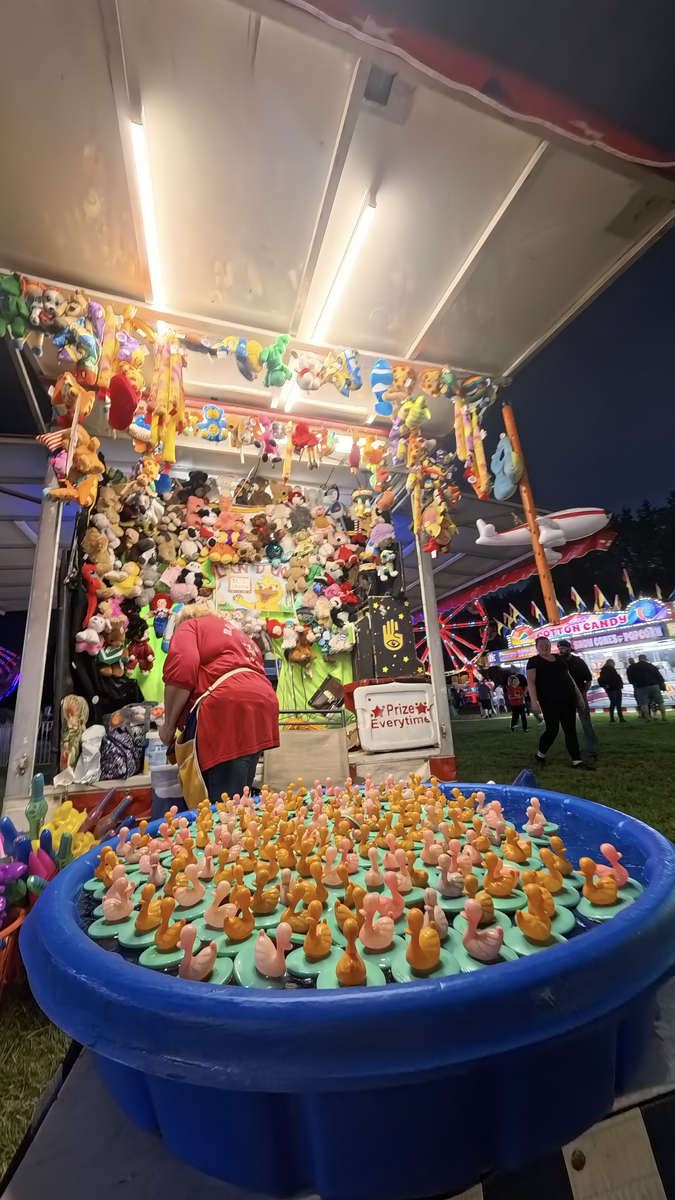
Going Home Again: The First Return
They say you can never go home again, and I got my first taste of this truth about ten years ago when I attended the Winsted fireman’s Carnival as an adult. Walking through the same gates, past the same rides, I expected to recapture that childhood magic.
Instead, I discovered something different. The ferris wheel that once seemed to touch the clouds now looked modest against the sky. The scrambler that used to spin me into dizzy euphoria felt tame and predictable. The big slide that required such courage to climb appeared smaller, less intimidating.
More significantly, I didn’t recognize many faces in the crowd. The families with young children were mostly strangers. The teenagers working the games weren’t kids I’d grown up with. The volunteer firefighters manning the booths were a new generation. The carnival continued, but my connection to the community had shifted during years away.
That first return taught me something about memory and change. The event itself remained largely the same, but my relationship to it had transformed completely.
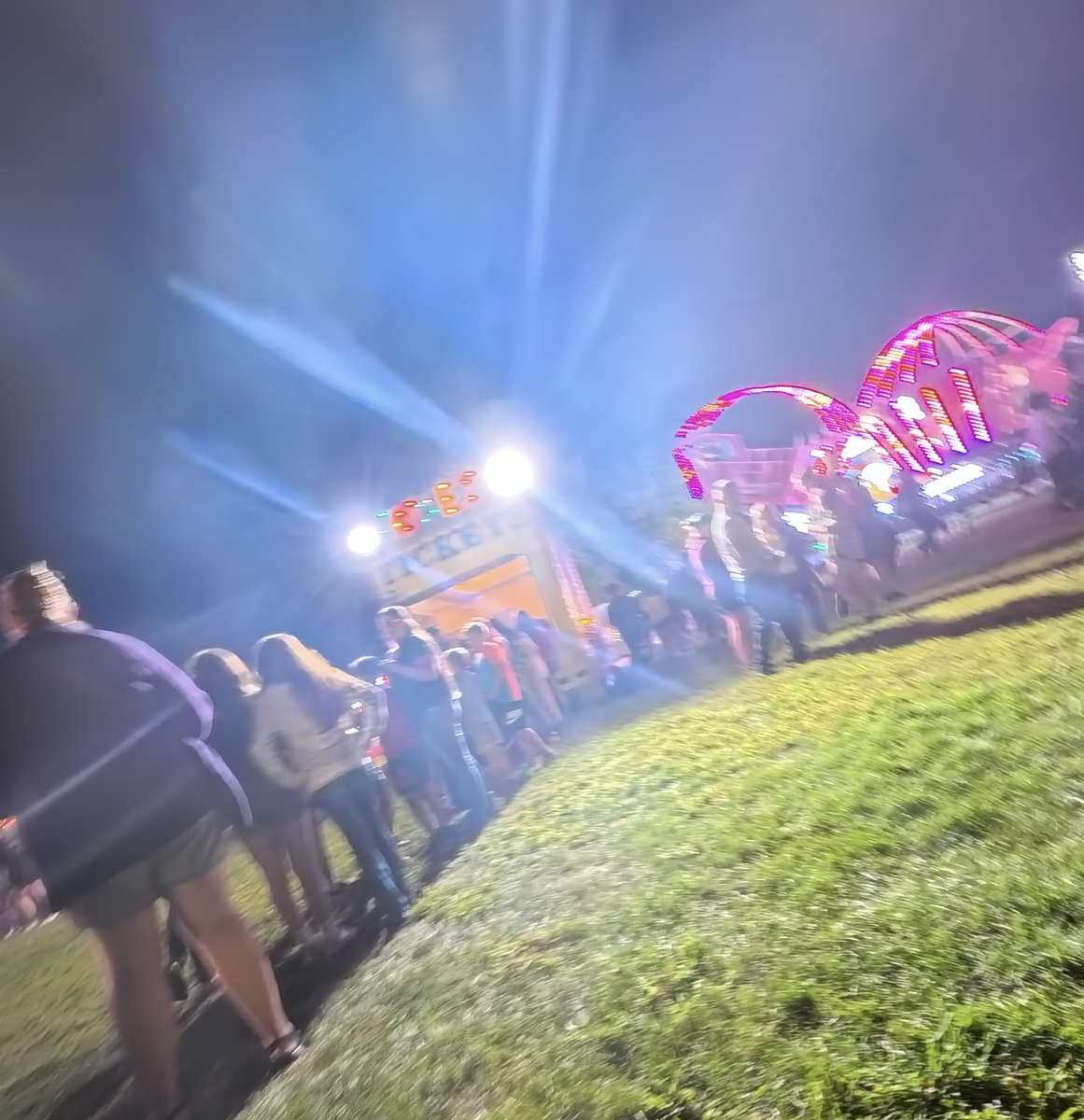
The Recent Visit: Perspective After International Travel
Just a couple days ago, I attended the Winsted fireman’s Carnival again, this time after years of international travel and experiences that have dramatically broadened my perspective. Walking through the midway brought back that same feeling I’d had ten years earlier – the recognition that childhood memories don’t always align with adult reality.
This isn’t a criticism of the carnival itself. I want to be clear about that upfront. The Winsted fireman’s Carnival serves an important function in the community, and it excels at what it’s designed to do – bring neighbors together, support the local fire department, and create memories for the next generation of kids who will someday look back on these nights with the same fondness I feel for my own childhood experiences.
But my perspective has been shaped by seeing fireworks at international festivals. I’ve watched the sky light up during the International Fireworks Festival in Vietnam, where displays last for hours and incorporate music, choreography, and pyrotechnics that cost more than most small towns’ annual budgets. I’ve sat on the Grand Canal in Venice during the Feast of the Redeemer Festival, watching fireworks reflect off the water while gondoliers navigate between crowds of boats filled with celebrating locals.
Compared to those experiences, small-town fireworks hit differently. The Winsted display still had impressive moments – a few really big fireworks that drew “oohs” from the crowd, a grand finale that filled the sky for several minutes. But my frame of reference has expanded beyond what any small Connecticut carnival could reasonably match.
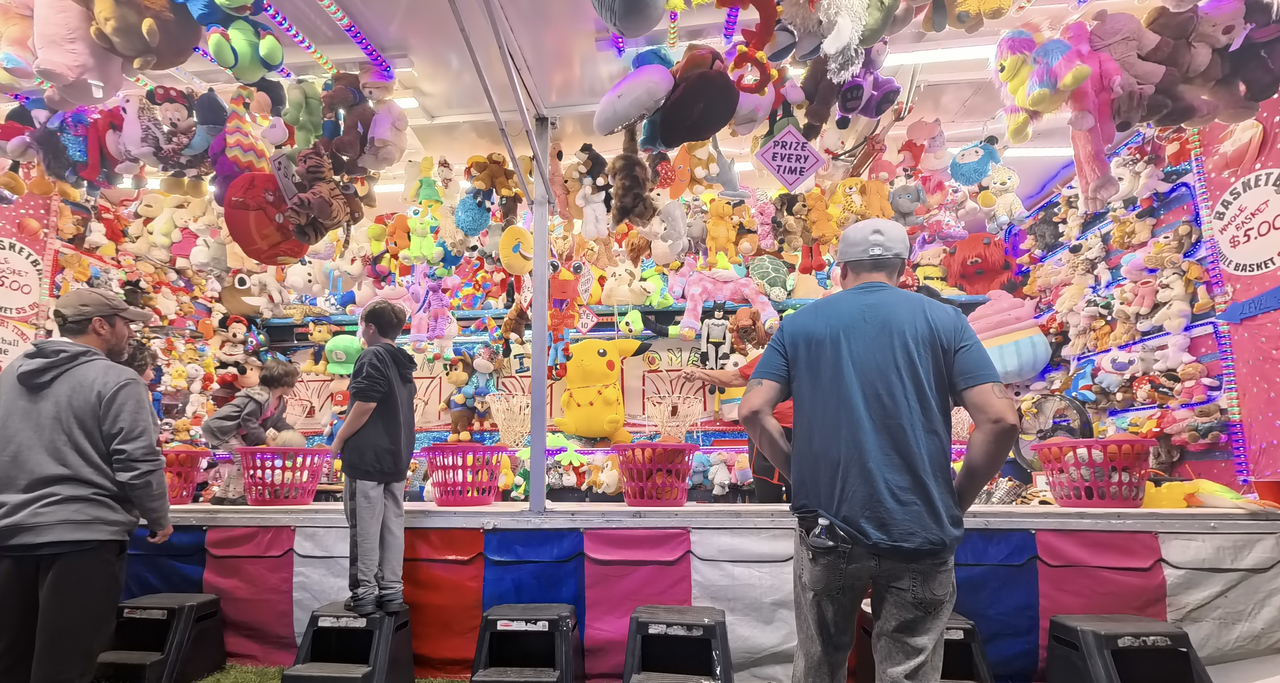
The Changes: Evolution of Small-Town Entertainment
Walking through the carnival, I noticed changes that reflect broader cultural shifts over the past thirty years. The game booths that I remembered featuring posters of scantily clad women as prizes now displayed exclusively stuffed animals, cartoon characters, and family-friendly merchandise.
This evolution speaks to changing community standards and values. What was acceptable or normal in small-town entertainment decades ago has been replaced by more inclusive, family-oriented approaches. It’s a reminder that even traditions adapt to reflect contemporary sensibilities.
The rides appeared to be operated by a different company than I remembered from childhood. The equipment looked maintained and safe, but there was something subtly different about the setup, the signage, the way everything was organized. Perhaps this reflects the business realities of traveling carnival operations – companies change, routes shift, equipment gets updated.
The layout of the carnival grounds remained essentially the same, with the ferris wheel in roughly the same spot, games lining similar pathways, and food vendors occupying familiar territories. But the details had shifted in ways that reinforced the feeling that this was both the same event I remembered and something entirely different.
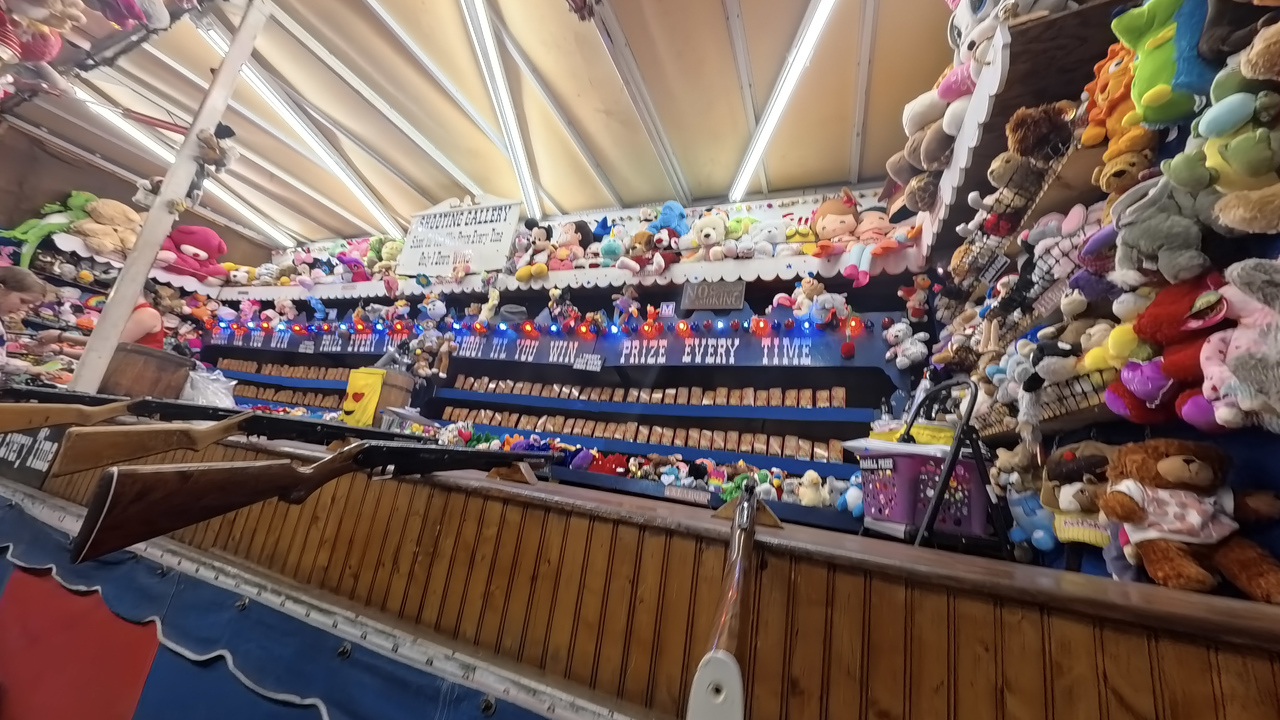
Despite my changed perspective, spending time at the Winsted fireman’s Carnival reminded me why events like this remain valuable. I watched kids experiencing the same wide-eyed wonder I’d felt decades earlier. Parents were creating memories with their children, just as my parents had done with me.
The volunteers working the booths, managing the games, and coordinating the event were contributing their time to support essential community services. Fire departments in small towns rely heavily on fundraising events like this to supplement their budgets and maintain equipment that protects residents year-round.
There’s something beautiful about a community coming together for a shared celebration. Neighbors who might not interact regularly throughout the year find themselves standing in line together, sharing popcorn, comparing notes about which rides their kids want to try. These informal connections strengthen the social fabric of small towns in ways that are easy to overlook but difficult to replace.
The carnival also provides local businesses with increased foot traffic and visibility. Restaurants, shops, and service providers benefit from the influx of visitors who come to town specifically for this event. In an era when small-town economies face numerous challenges, any activity that brings people downtown serves multiple purposes beyond just entertainment.
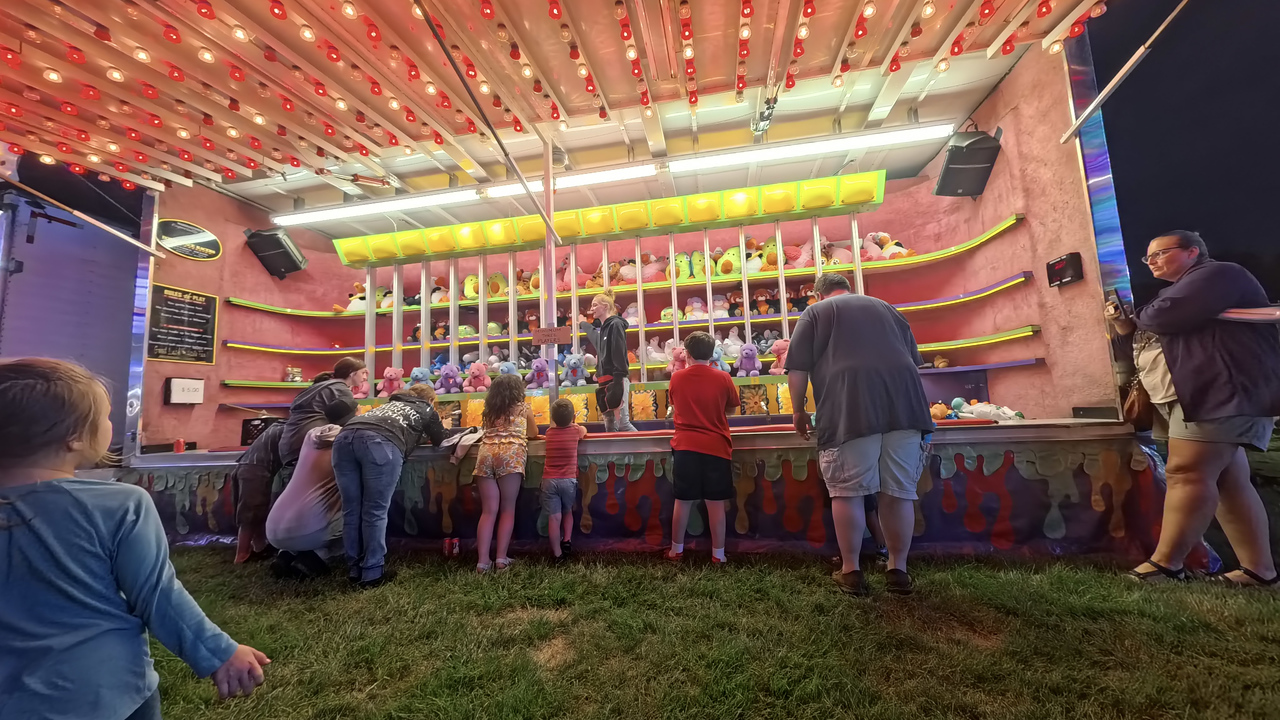
The Intergenerational Experience: Watching New Memories Form
One of the most rewarding aspects of attending the carnival as an adult was observing families create memories together. I watched parents lifting toddlers onto ride seats, explaining how the games worked, sharing cotton candy, and pointing out interesting sights throughout the midway.
I saw teenagers navigating their own independence, moving through the carnival in groups, making decisions about how to spend their money, developing relationships away from parental supervision. These are the same social dynamics I experienced decades ago, just with different faces and contemporary details.
The younger children approached everything with unbridled enthusiasm. Rides that looked routine to my adult eyes clearly felt like major adventures to five and six-year-olds. Games that offered obviously modest prizes generated genuine excitement when kids managed to win something.
Watching these interactions reminded me that the magic isn’t necessarily in the rides, games, or even the fireworks themselves. The magic is in the experience of discovery, shared adventure, and community celebration. Those elements remain constant even as individual perspectives change over time.
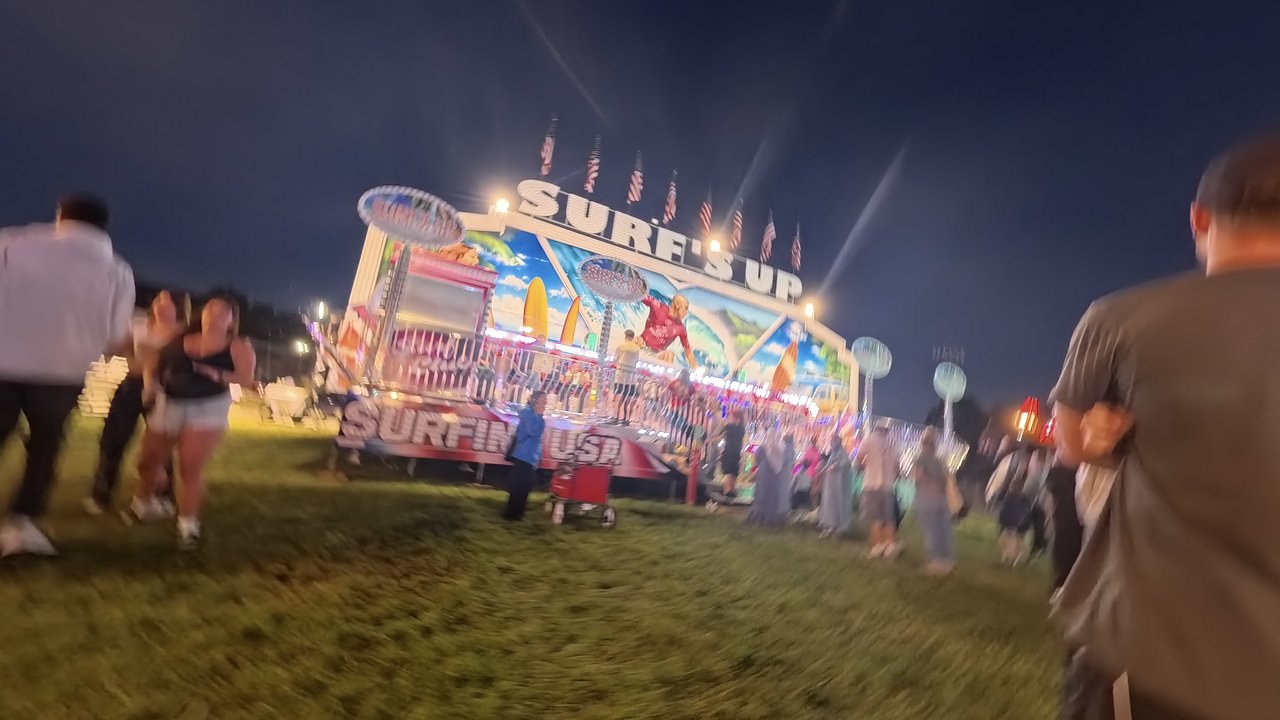
The Broader Context: Small-Town Events in a Global World
Having lived internationally and experienced large-scale festivals in major cities, I’ve gained appreciation for what small-town events like the Winsted fireman’s Carnival represent. They’re not trying to compete with Disney World or international music festivals. They’re serving a different purpose entirely.
These local celebrations maintain traditions, strengthen community bonds, and provide accessible entertainment for families who might not have resources for expensive vacations or elaborate outings. They create shared experiences that become part of local identity and collective memory.
The carnival also represents volunteer community service in its purest form. The firefighters organizing the event, the local businesses sponsoring activities, the residents who show up to support their neighbors – this is grassroots community engagement that doesn’t happen automatically. It requires people who care enough about their town to invest time and energy in maintaining traditions.
From a cultural perspective, events like this preserve something valuable about American small-town life. They provide continuity across generations, giving parents opportunities to share experiences from their own childhoods while creating new memories with their children.
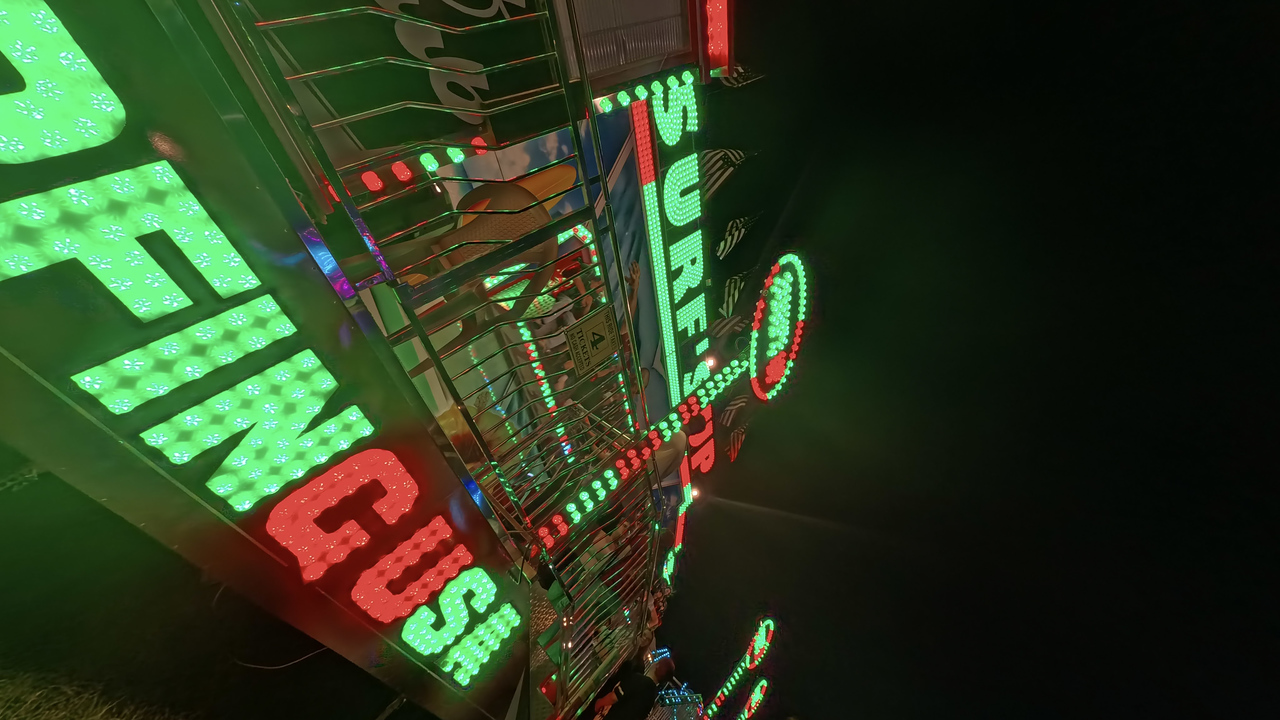
The Economic Reality: Supporting Essential Services
Beyond the nostalgia and community-building aspects, the Winsted fireman’s Carnival serves crucial practical purposes. Fire departments in small towns operate on tight budgets, and fundraising events like this provide necessary supplemental income for equipment, training, and operations.
When you buy a ticket for the ferris wheel or try your luck at the ring toss, you’re contributing directly to services that protect your community year-round. This connection between entertainment and civic support gives the carnival additional meaning beyond just having fun.
The economic impact extends to local businesses as well. Hotels, restaurants, gas stations, and shops benefit from increased activity during carnival weekend. Visitors from surrounding towns contribute to the local economy while participating in the festivities.
This economic dimension helps explain why communities continue investing time and energy in organizing events like this despite the considerable work involved. The benefits extend far beyond the four days of actual celebration.
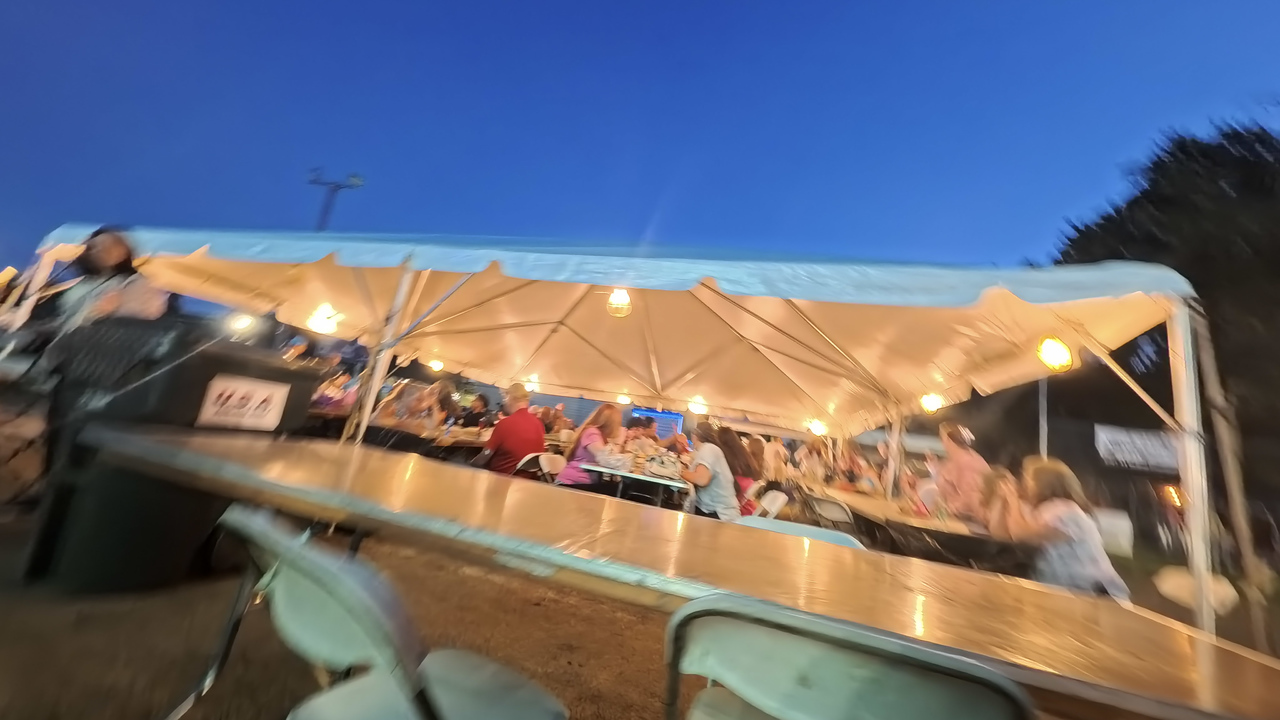
Looking Forward: Will I Return?
The question of whether I’ll attend future Winsted fireman’s Carnivals is interesting to consider. Despite the changes in my perspective, despite the fact that childhood magic can’t be fully recaptured, I think the answer is yes.
I’ll return because there’s value in maintaining connections to the community where I grew up, even if those connections feel different than they once did. I’ll return to support an important local institution that provides essential services to residents. I’ll return to observe how the event continues evolving and adapting to serve new generations of families.
Most importantly, I’ll return because there’s something grounding about participating in traditions that connect you to your own history while contributing to the ongoing life of your hometown community.
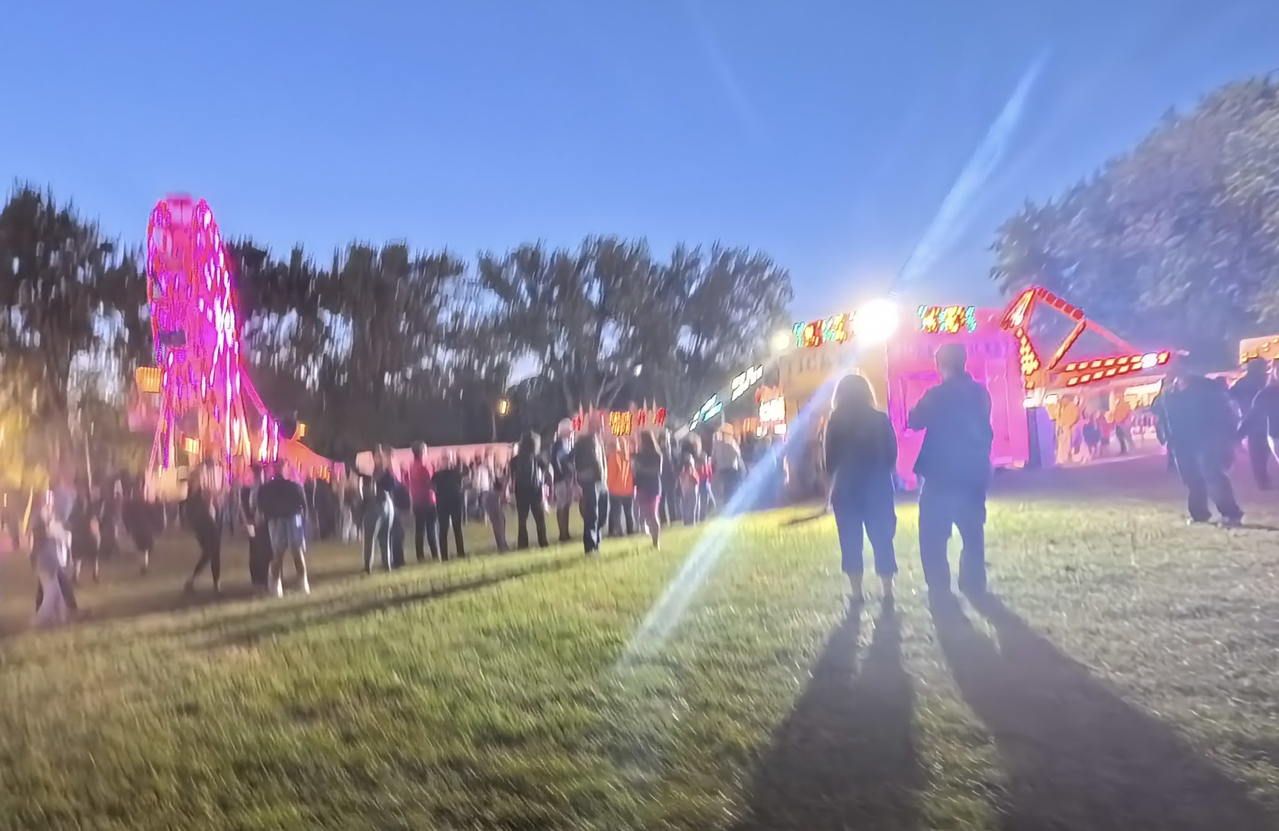
The Universal Experience: Childhood Memories and Adult Reality
The experience of returning to childhood places and finding them changed isn’t unique to me or to the Winsted fireman’s Carnival. This is a universal human experience – the recognition that growing up changes how we see everything, including the places and events that once seemed magical.
What’s interesting is how this realization can lead to different responses. Some people become bitter about the loss of childhood wonder. Others dismiss their hometowns as boring or irrelevant. Still others find ways to appreciate both their memories and current reality simultaneously.
I prefer the third approach. The carnival isn’t diminished by being smaller than my childhood memories suggested. It’s not less valuable because fireworks in Venice are more elaborate. It serves a different purpose now – not creating wonder for me personally, but supporting community cohesion and providing wonder for the next generation.
The Continuing Story: Future Generations and Their Memories
Walking through the carnival, I found myself wondering about the kids who were experiencing it for the first time. What will they remember about these nights thirty years from now? Will they return as adults and feel the same mixture of nostalgia and recognition of change that I experienced?
Will they appreciate the tradition as it exists, or will they expect something bigger, more elaborate, more aligned with whatever entertainment options their generation considers normal? How will the carnival adapt to serve future communities while maintaining the essential elements that make it valuable?
These questions don’t need immediate answers, but they’re worth considering as we think about the role of local traditions in rapidly changing world. Events like the Winsted fireman’s Carnival represent continuity, but they also need to evolve to remain relevant and meaningful for new participants.
The Bottom Line: Appreciating What Still Works
The Winsted fireman’s Carnival taught me something important about returning home and managing expectations. You can’t recapture childhood magic, but you can appreciate what continues to work about community traditions.
The event still brings neighbors together. It still supports essential services. It still creates memories for families. It still provides accessible entertainment and shared experiences that strengthen community bonds.
My perspective has changed, but the carnival’s core purpose remains valid and valuable. Instead of lamenting what felt different, I can appreciate what continues working while acknowledging how my own growth and experiences have shifted my frame of reference.
The ferris wheel still turns. The big slide still attracts adventurous kids. Fireworks still fill the sky. Community members still volunteer their time to make it all happen. These constants matter more than my personal nostalgia.
What are your thoughts on returning to childhood places and experiences? Have you found similar mixed feelings when revisiting events that once seemed magical? Do you think small-town traditions like this maintain their relevance as the world becomes increasingly connected and globalized?
I’m always interested in hearing different perspectives on how we balance honoring local traditions while adapting to changing times and expanding worldviews.
For those interested in travel content, outdoor adventure stories, or collaboration opportunities, feel free to write to me about working together on projects. I’m always interested in hearing from interesting people.
Also, I do have a new book about my 47 days traveling and touring with the Ringling Brothers and Barnum & Bailey Circus back in 2017. It’s out now on Amazon books as an ebook and in softcover and hardcover formats. Here is a link to Amazon where you can check it out: https://amzn.to/3UFcDCv
